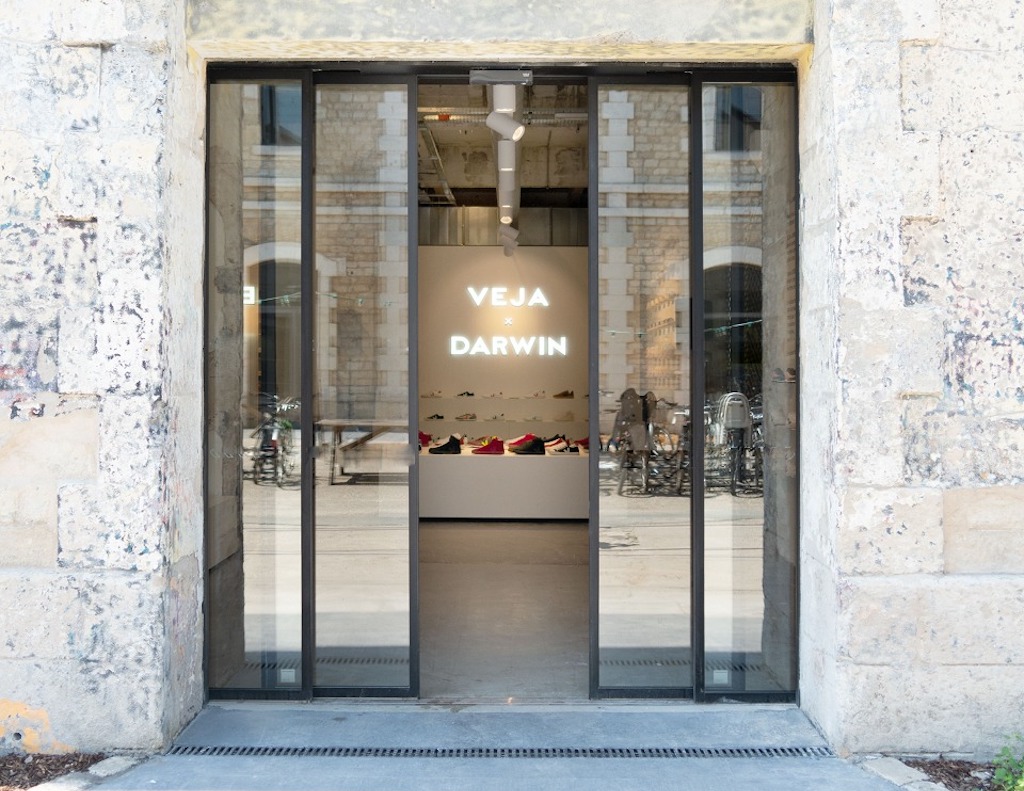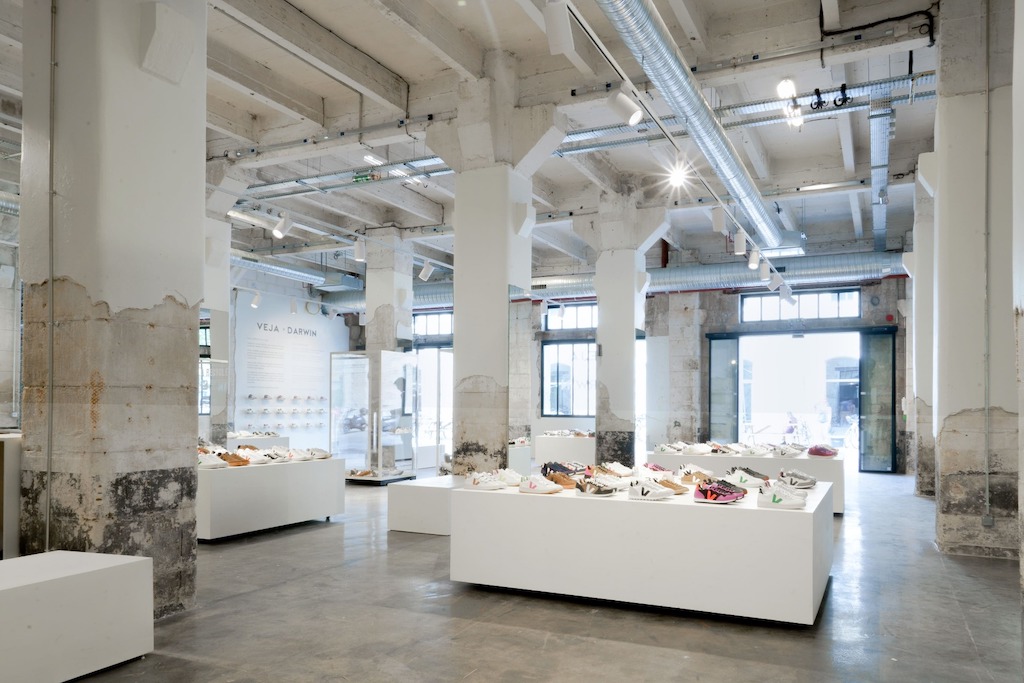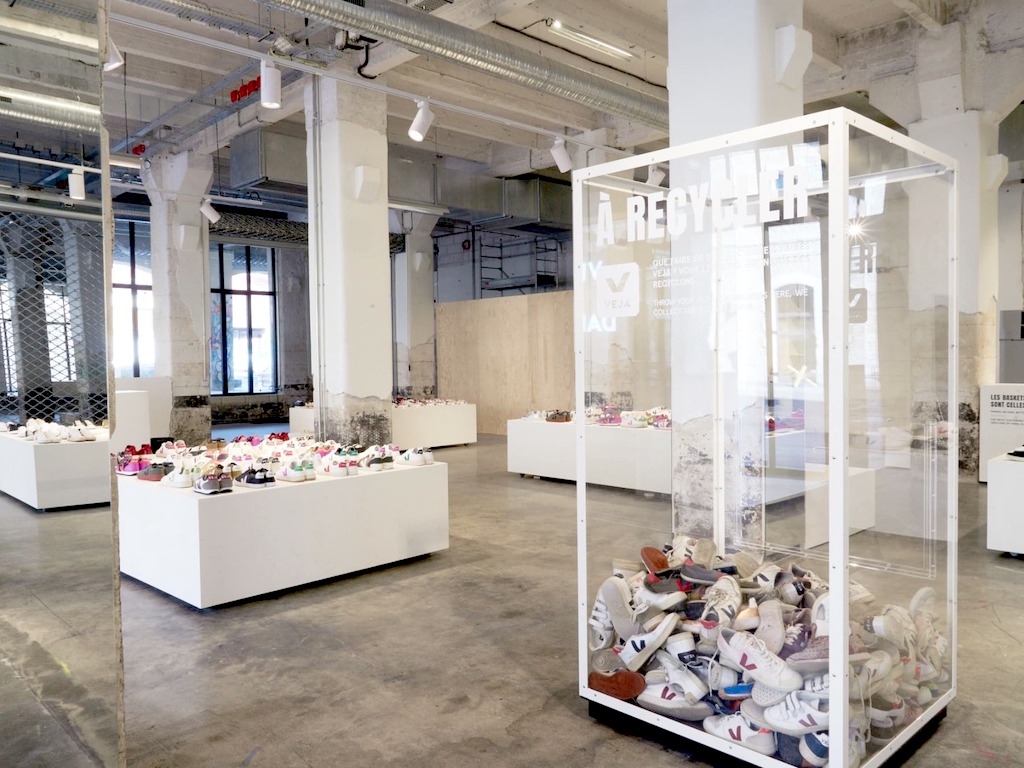3 Mins Read
French sustainable sneaker label Veja has just opened its first Test Hub dedicated to clean, recycle and refurbish old pairs of Veja shoes. It will also offer customers prototypes of the brand’s shoes that hadn’t made the cut to go to market, which will be sold at reduced prices, as well as pairs from old collections.
Called Veja x Darwin, the new 820-square foot shop in the famed wine-growing region of Bordeaux, France, is the brand’s blueprint for how its stores might look like in the future. Located in the Darwin complex in the former military barracks on the Quai des Queyries, Veja’s latest storefront is committed to circularity and will offer customers repair, cleaning and recycling services as well as a chance to pick up sneakers from older or never-launched prototype collections for a discount.
“A shoemaker’s workshop will clean and repair worn pairs, while those in poor condition will be collected and recycled,” explained the company in a social media post.

True to Veja’s green credentials, the brand partnered with architecture agency Le Bureau Baroque to create its new space using locally sourced wooden materials, and is powered using 100% renewable energy supplied by Enercoop.
The Darwin was first opened in 2012 as a renovated historical site, and is now home to more than 200 companies ranging from art to culture and sport. Veja’s Test Hub will be the newest name to the list of shops in the complex, among them an organic restaurant, an urban farm and even rooms for graffiti artists to rent.
Co-founder Sébastien Kopp previously alluded to the brand’s circular project earlier last November. At the time, he described what is now known as Veja x Darwin as “more like a laboratory” where the company will be able to test different sustainability elements and initiatives.

Veja’s reaffirmation of its eco-friendly commitments comes as the fashion industry as a whole takes heed to the fact that “business-as-usual” is no longer viable. Figures highlighting the industry’s astonishing role in global pollution – 92 million tonnes of landfill waste, 20% of global water wastage and 10% of greenhouse gas emissions – has sent customers looking for greener options.
In order to appeal to an increasingly conscious audience, even fast fashion giants such as H&M have adopted circular initiatives. Last year, the firm debuted its first repair, recycle and rental concept at its Stockholm flagship store, followed by a slew of measures, from launching its sustainable B2B arm Treadler to using more sustainable fabrics such as circulose and vegan leather created using wine waste.
Luxury fashion isn’t exempt from the trend either, the most recent examples being Kering’s decision to appoint Emma Watson as a board member and chair of its sustainability committee and London-based online upscale fashion platform Farfetch’s move to introduce a fashion footprint tool.
All images courtesy of Veja.



